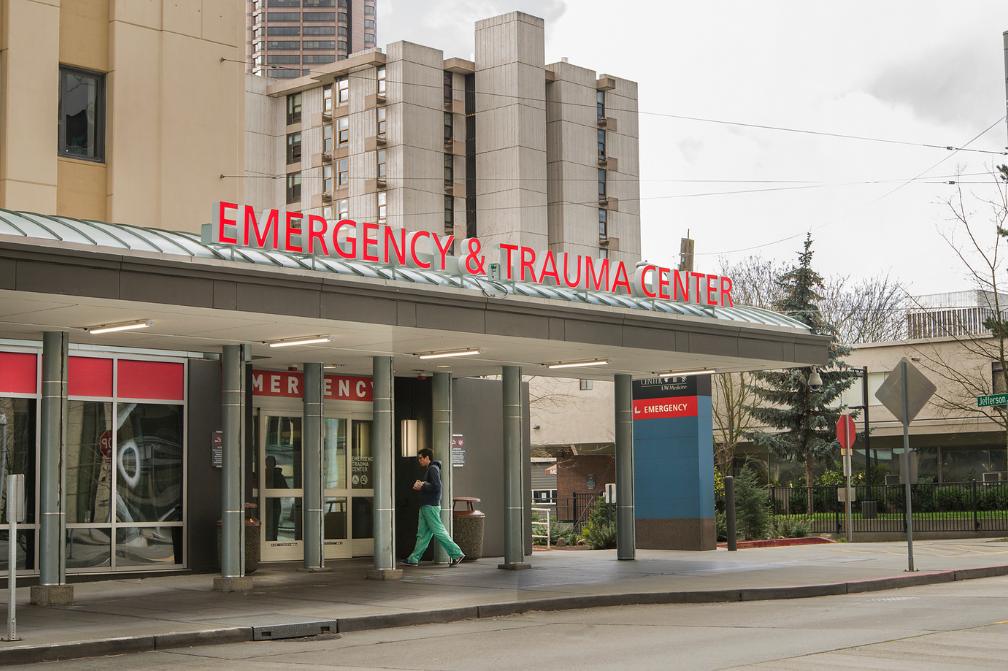WHAT IS A BIAS INCIDENT?
A bias incident is any incident in which one feels that an individual within our UW Medicine community was treated differently based on their identity and the experience could produce harm. This could include experiences of racial bias/racism, sexism, gender bias, ableism, or other actions, behaviors, or processes that do not reflect the values of inclusion and equity expected in our community.

Bias Incidents Reporting
Since the UW School of Medicine launched the Bias Reporting Tool in early 2021, over 1000 events have been reported. Their second annual report provides information on the 372 events reported last year.
Communication and Bias Navigator program
Navigators can provide a safe space to express concerns, help navigate the resources and options available, and provide conflict resolution coaching.
Their roles can be broken down into three categories:
Intake and Listening
“What did I just experience? Why do I feel this way?”
Experiencing a bias incident or a conflict in the workplace can be jarring and cause people to wonder. Navigators can be there to just listen if you need someone to talk to and help process what occurred. We are here to affirm your experience and offer a safe space to express your concerns.
Resource Guide
We are here to show you your next step if you feel comfortable enough to move a process forward. The emergency department and the hospital at large can be complex. A Navigator will be able to inform you of the options available to you after experiencing an incident and point you in the best direction, whether you choose to follow an informal or formal process.
Conflict Resolution Coaching
We understand that some individuals would prefer addressing the incidents they may have experienced themselves. Navigators are trained to help coach and utilize the skills, language, and strategies to have tough conversations on your own. This practice is grounded in understanding context, power dynamics, and other factors that should be taken into account when trying to address a bias incident in your place of work.

Equity, Diversity, and Inclusion Training
View the list of UW Medicine's upcoming 2024 EDI Foundational Training courses.
contact
CONFIDENTIALITY
It is important to note that Navigators do not perform formal investigations. Our mission is to provide you with support and advocacy while determining follow-up activity where appropriate. Responses will vary based on the nature of the incident and can include additional communications with pertinent offices on campus. In most cases, the employee decides if they want to have a formal investigation initiated. However, there are certain instances (e.g., sexual misconduct, hate crimes) where we may be compelled by law to report.
Additional Resources

HMC Culture Change Resources
This document is intended to provide a few suggestions for personal development. The HMC Culture Change team is open to others.
Well-Being & Safety
- CareLink
- Peer-to-Peer
- Know Your Rights
- LiveWell Confidential Advocates
- Queer Center
- Safe Campus
- Transgender Resources
- TheWholeU
Reporting Tools and Complaint Resolution
- Bias reporting tool
- Civil Rights Investigation Office
- DOM Intranet-Complaint Resolution Resources
- DOM Academic HR: Jackie Monroe or Dr. Cynthia Ko
- DOM Staff HR: Bryn Vaswig or Chrissie Younie
Accessibility
Affinity Groups
- Asian and Pacific Islander American Faculty & Staff Association
- Black Faculty & Staff Association
- Q Faculty, Staff & Allies Association (QFS)
- Latinx Association
- Native Association
Conflict Resolution





